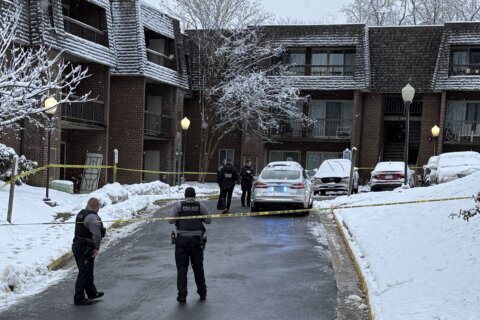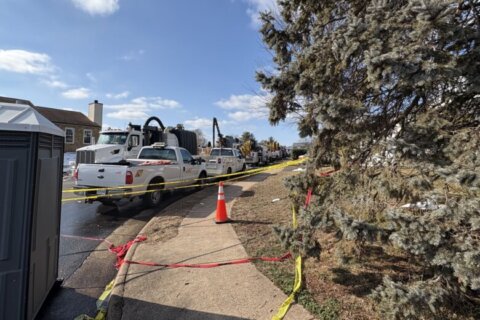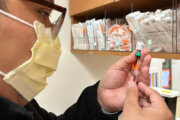Students at Fairfax County, Virginia’s, Thomas Jefferson High School for Science and Technology have a lot riding on Saturday’s planned launch of a SpaceX rocket.
Students at the school built a satellite that the SpaceX cargo launch will deliver to the International Space Station.
“This was not a kit. The students actually put together space-grade components … this is something that Ph.D students do. This is something that graduate students do,” said Kristen Kucko, the school’s robotics lab director.
The satellite, which is about the size of a tissue box, is named TJ Reverb, and its mission is to measure the effectiveness of iridium radio for satellite communications.
“What we’re trying to figure out is whether or not that system works if you have the origin point in space,” said Arthur Prudius , a junior at the school and a member of TJ Space, the after-school lab that constructed the satellite.
“Basically, it turned into like a full-time, after-school job. We’d just all get on calls at night and work on code reviews and work on trying to figure out why a circuit is not working,” said Pranav Vadee, a junior member of TJ Space.
The students’ efforts, seven years in the works, won’t end with Saturday’s launch, but will continue over the months, when students communicate with the satellite, which is scheduled to be deployed by the space station crew in January.
“On Nov. 12, we’re able to get 36 kids amateur radio technician licenses, and we’re working on trying to get a few more people with the … license, as well,” Kucko said.
While the satellite remains safely stowed aboard the SpaceX Cargo Dragon 2 spacecraft, so far it’s been a rewarding learning experience for the students.
“We’ve really learned to rely on each other and to learn from each other. We teach each other, and it’s a great experience for us all,” Vadee said.








